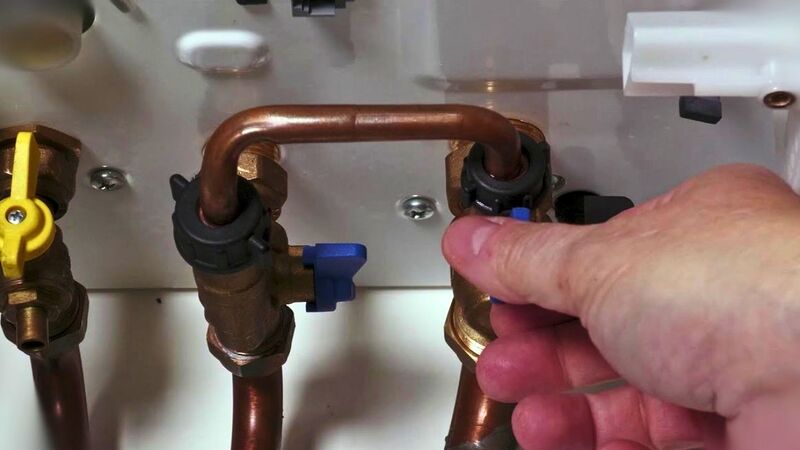Hi, I’m Charlie, and I know firsthand how frustrating it can be when the boiler starts acting up, especially on a cold morning when all you want is a warm shower and a cosy home. If you’ve been wondering, “Boiler keeps losing pressure?”, I want to walk you through it calmly and clearly. No panic. No complicated jargon. Just helpful advice from one homeowner to another — so you can feel confident about what’s going on and what to do next.
Let’s dive in.
First, What Is Boiler Pressure (And Why It Matters)
Think of boiler pressure as the heartbeat of your heating system. It’s the force that keeps hot water flowing through your radiators and taps.
Most modern boilers don’t use those big tanks in the loft anymore. Instead, they run on a closed loop with a clever little thing called an expansion vessel, which adjusts as the water heats and cools.
To work smoothly, your boiler pressure needs to stay in a “just right” zone — usually between 1 and 2 bars. Too low? The heating might cut out. Too high? The safety features will kick in and stop it from running.
How to Know If Your Boiler Pressure Is Too Low
The good news is that checking boiler pressure is easier than you might think.
On the front of your boiler, you’ll see a pressure gauge — a small dial with numbers on it. If the needle has dipped below 1 bar, your boiler is losing pressure and needs a little attention.
Some boilers have digital screens with error codes too. Don’t worry — your manual will explain what they mean. Just look for anything mentioning low pressure.
So… Why Does My Boiler Keep Losing Pressure?
It’s a great question — and there’s not always one single answer. But there are a few usual suspects to look out for:
1. You’ve Bled the Radiators Recently
Letting out trapped air can also release a bit of water. That’s totally normal. But if you forget to top the system up afterwards, your boiler pressure can drop.
2. There’s a Leak in the System
Small leaks are more common than you’d expect. It could be around a radiator valve, pipe joint, or even inside the boiler itself. Over time, even a slow drip can cause the pressure to fall.
3. Wear and Tear
Like anything in your home, heating systems age. Pipes shift. Seals weaken. If your boiler keeps losing pressure, it might just be time to check if a component has seen better days.
How to Spot a Leak Without Ripping Up the Floor
Leaks aren’t always obvious — but your home might be dropping little clues:
-
Damp patches near radiators or pipes
-
Peeling paint or bubbling wallpaper
-
Water stains on the floor or ceiling
Run your hand along the pipes. Feel for dampness. If you’re unsure, place a tissue or a tray underneath overnight to check for drips. Sometimes it’s condensation, but other times it’s the sign of a small but steady leak.
If anything looks suspicious, it’s best to call in a Gas Safe Registered engineer. They’ll diagnose the issue properly and make any safe repairs.
Can a Boiler Lose Pressure Without a Visible Leak?

Yes, absolutely.
Internal leaks inside the boiler can be the culprit. These might come from parts that have corroded over time, or fittings that have just come a little loose.
You might spot a small pool of water under the boiler. Or perhaps your boiler is quiet one day and throwing out error codes the next. Either way, it’s time to let the professionals take a look.
And if your boiler’s still under warranty? Check the paperwork before paying for repairs. You might be pleasantly surprised.
How to Top Up Boiler Pressure (If You Feel Confident)
Okay, so if your system is simply low on pressure and there’s no sign of a leak, here’s how you can safely top it up using the filling loop.
It’s usually a small, silver, flexible hose tucked under the boiler:
-
Turn the isolation valve anti-clockwise with a flathead screwdriver.
-
Open the handle valve gently and watch the pressure gauge.
-
Once it reaches 1.5 bar, turn both valves clockwise to close.
-
Check your boiler display — the fault code should vanish, and your heating should kick back in.
It’s a small task, but it can make a big difference. If you’re not sure, there’s no harm in asking a friend, neighbour, or trusted engineer to guide you.
Small Habits to Avoid Future Pressure Drops
Sometimes, it’s the little things that keep everything running smoothly:
-
Bleed radiators with care, and always check pressure afterwards.
-
Book an annual service — it keeps your boiler healthy and prevents surprises.
-
Check the gauge now and then — a quick glance can save you from freezing later.
Your home should be a place of comfort, not confusion. A little knowledge goes a long way in keeping it that way.
Final Thoughts: Don’t Panic if Your Boiler Loses Pressure
To recap gently:
-
Low pressure is usually easy to spot — just check your boiler gauge.
-
Most causes are small leaks, air release, or aging parts.
-
You can top it up yourself — but never force it if you’re unsure.
-
And always, always ask for help when in doubt.
So the next time you’re asking, “Boiler keeps losing pressure?”, I hope you’ll feel a bit more in control.
And if this post helped bring even a little peace of mind, then it’s done its job. 💛

